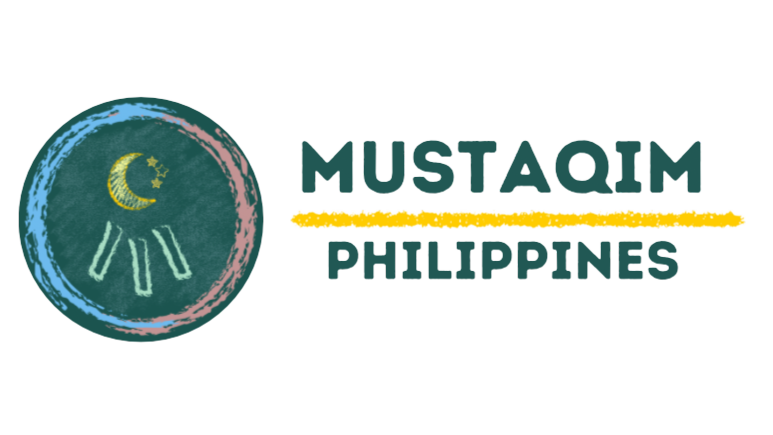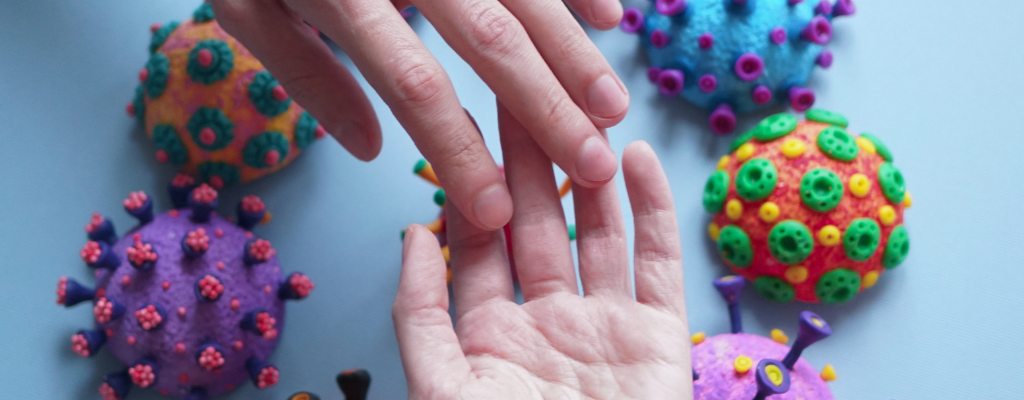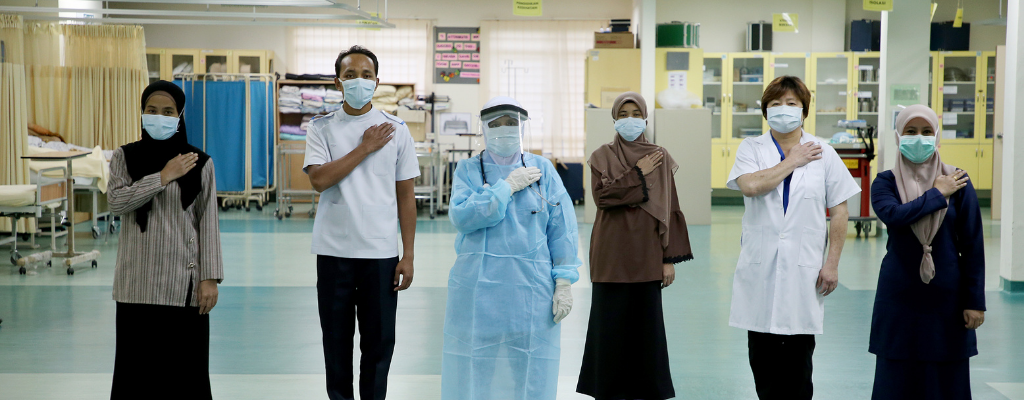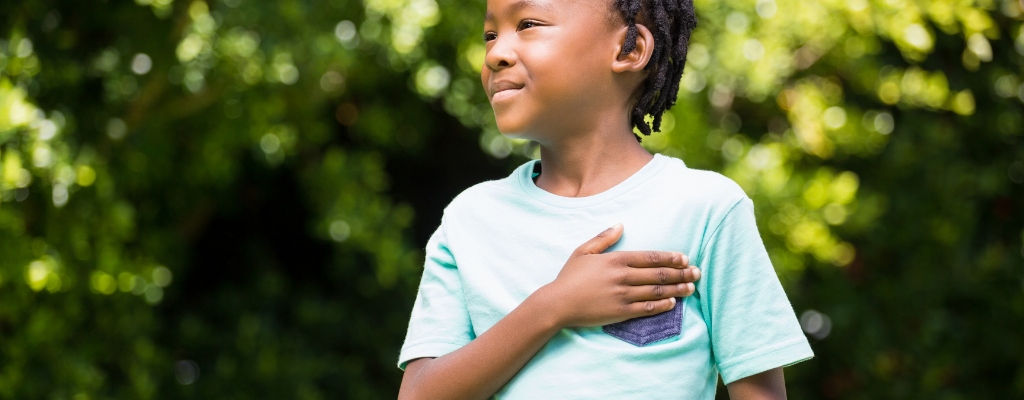Choosing a Leader for the Philippines
The masses will once again decide in the upcoming 2022 National Elections on who will be the next elected leaders of our nation. This historical moment can make or break our country. This upcoming election will challenge us as voters on our decision making, critical thinking, and values in choosing a leader for the Philippines.
According to We Need a Leader Website, there are four characteristics that we need to consider in choosing a leader for our country: Brains, Heart, Balls, and Fortitude. According to them, we need a leader that has “brains” because the Presidency in the long run is a tough process. The next president should have a better understanding and capabilities to address problems and have a right solution for the best interest of the nation. Some examples demonstrated by leaders that have brains are those who have realistic and achievable platforms, experts or have wide grasps of knowledge in all aspects of policy making, have a systematic response to all problems and are creative in finding solutions to issues.
The leader should also have “heart.” It means that the next president has empathy and sensitivity to the needs of its constituents to govern effectively and responsibly. By having a heart, the leader will know the simplest form of problems of what a typical Filipino experienced in a day. This will give a leader an appropriate program to address the issues precisely because he or she knew at the beginning what problems might need to be addressed.
The next characteristic is having “balls.” Having “balls” means having strength and courage to face difficult and complicated problems of the country. Regardless of the consequences, the leader that has balls can come up with a solution, even though the majority may feel unease or discomfort, he or she will continue its implementation with strong conviction and righteous interest to the betterment of the nation. One of the examples of this is the problem of insurrection or rebellion, the leader can pacify and bring this to end in a peaceful way without resorting to bloodshed but in a win-win situation to all involve.
Now, the last and similarly important characteristic is Fortitude. This word can be associated with being “strong” in the midst of trials. The leader who has this characteristic can make a quick but consistent decision in present and future challenges of the journey like acting efficiently on calamities, sudden changes on the price of commodities, pandemic, and many more. Leader who has this characteristic can work under pressure and have no second or third thought in their heads in times of decision making, when judgment, appropriate, and quick actions are needed.
In the end, we can use these characteristics to measure the candidates in some election-related scenarios. These may have been a simple and easiest way to dig the candidates deeper on their motives and characteristics in terms of serving our nation. The characteristics may also be visible to one or two candidates but as a voter, we must be critical and demanding in choosing the next leader because our choices can make or break our nation and our fellow citizens’ future.
Celebrating Valentine's Day and Filipino Nationalism at the same time
“Love is in the air!” This is the quotation that best describes the month of February. When we hear this month, Valentine’s Day comes to mind. In typical Filipino culture, Valentine’s Day is celebrated by modern courtship or dating, flower and gift giving, mall strolling, and hanging out. We do this sometimes to show our affection to our loved one. In connection to this, we can relate Valentine’s and the way we celebrate it to Filipino nationalism.
During Valentine’s day, we normally go to malls, parks, and lovely places but in expressing our nationalism, we can visit historical sites in the metro or in provinces. When dating, while dine-ins, and giving gifts and flowers are romantic, we can show our nationalism by buying local food, watching local movies (Indie films), buying local items to gift and flower shops to support local SMEs, and giving out indigenous items. Courting your loved one is a common way to show our love but if we showcase our nationalism, we can show our love by remembering our history and historical figures through reading their biography, studying history, and applying their positive traits for the benefit of our nation. Another romantic gesture is letter-giving wherein we can write letters and send it to someone through our local post offices to boost the Filipino culture of sending classic love letters.
There are also a lot of things to do for us to show our nationalism while celebrating Valentine’s Day. As a Filipino, aside from our loved ones, we should expand our deep affection to our tradition and culture, history, and to our kababayan. Nationalism and love cannot be separated, doing both every day and not only during occasion, can bring positive impact to our mother land.
Philippine Holidays for 2022
As we welcome the year 2022, it is important to commemorate the days which have a significant part in our history. These days serve as a reminder to the present generation what took place during these dates.
In the Philippines, public holidays are categorized into two types: regular holidays and special non-working days. These two types of holidays are specified in the Labor Code of the Philippines as there is a difference in terms of pay which the employers need to observe. Employees are entitled to a paid day off for the 14 regular holidays while those under “special non-working” days do not qualify for holiday pay. In addition to this, based on the Labor Law, an employee who rendered work during regular holidays is entitled to twice their daily wage while those who work during “special non-working” days are eligible for one and one-third of their daily wage.
Some of the holidays are to commemorate our Filipino heroes while some are based on religious beliefs.
As published in Wikipedia, one of the biggest and most celebrated holidays in the Philippines is Christmas (December 25). Filipinos from all over the world mark September 1 as the start of the “Ber Months”. This is also the beginning of the Christmas countdown.
The government established Eid’l Fitr as a regular holiday to honor our country’s Islamic heritage. Muslim Filipinos comprise about six percent of the population as published in officeholidays.com.
The regular holidays are:
- January 1, 2022, Saturday – New Year’s Day
- April 9, 2022, Saturday – Araw ng Kagitingan
- April 14, 2022, Thursday – Maundy Thursday
- April 15, 2022, Friday – Good Friday
- May 1, 2022, Sunday – Labor Day
- June 12, 2022, Sunday – Independence Day
- August 29, 2022, last Monday of August – National Heroes’ Day
- November 30, 2022, Wednesday – Bonifacio Day
- December 25, 2022, Sunday – Christmas Day
- December 30, 2022, Friday – Rizal Day
Special non-working days:
- February 1, 2022, Tuesday – Chinese New Year
- February 25, 2022, Friday – EDSA People Power Revolution Anniversary
- April 16, 2022 – Black Saturday
- August 21, 2022, Sunday – Ninoy Aquino Day
- November 1, 2022, Tuesday – All Saints’ Day
- December 8, 2022, Thursday – Feast of the Immaculate Conception of Mary
Special working days:
- November 2, 2022, Wednesday – All Souls’ Day
- December 24, 2022, Saturday – Christmas Eve
- December 31, 2022, Saturday – last day of the year
The President will issue separate proclamations declaring national holidays for the observance of Eid’l Fitr, the end of the month-long Ramadan, and Eid’l Adha, the Feast of the Sacrifice, after the dates of these Islamic holidays are determined in accordance with the Islamic calendar or the lunar calendar. The National Commission on Muslim Filipinos shall inform the Office of the President of the dates on which these holidays will fall in 2022.
Source: https://www.officialgazette.gov.ph/nationwide-holidays/2022/
https://www.rappler.com/nation/list-2022-holidays-philippines/
Vaccine and Religion: Promoting Health in Times of Pandemic among Muslims
Vaccine hesitancy is one of the problems the government is facing up to now. According to a study and survey conducted by Rappler and other religious organization including Muslim Ulama, Christian scholars, and the World Health Organization (WHO), one of the factors linked to hesitancy is the factor of religion. Focusing on the Muslim community, they are cautious in choosing their vaccine - whether it is halal (permissible) or haram (forbidden). There are various studies and reports that some brands of vaccines have swine pigment. This creates hesitancy among Muslims to take a jab. In relation to this, anti-vaxxers emerged from Indonesia and Philippines, particularly Muslims who voiced their concerns in the government's vaccination initiative and bioethics in creating vaccines.
There have been various consultations and hearings initiated by the Philippine government to overcome this concern. Legislators highlighted about considering Muslim’s belief to raise the vaccination efforts in Mindanao. Other government agencies like Department of Health (DOH) and National Commission on Muslim Filipinos (NCMF) tapped various Muslim leaders in the country who consulted the Ulama and imams to promote and take part on the information campaign for national vaccination and COVID-19. With this initiative, vaccination shifted from the capital city to BARMM.
Before the initiative, only 11 percent of BARMM were vaccinated. However, with the effort of the government, it rose to 13.75 percent of a total target of approximately 3 million, of which 411,092 were fully vaccinated as of December 12, 2021 according to Radio Television Malacañang (RTVM). Overall, there are a total of 1,279,465 vaccinated individuals in the BARMM according to the updated DOH data. This percentage was high compared to the previous vaccination drive. It implies that citizens of the BARMM are supporting the vaccination efforts against the COVID-19 regardless of religion and beliefs.
On the concern of halal (permissible) or haram (forbidden), the government assured that the vaccine went through clinical trials and bioethical standards to validate that it is safe to use. In connection to this, according to some ulama and imam who conducted a study and initiative in the government's vaccination program, prohibited or forbidden could be allowed in emergency situations where Muslims can either choose haram vaccine if there are no other choices but if there are halal, choose the halal ones. If the halal runs out, use the haram. This is applicable in emergency situation where vaccine supply can be limited that can affect the lives of our Muslim friends.
Notable COVID-19 Heroes
“A hero is an ordinary individual who finds strength to persevere and endure in spite of overwhelming obstacles.” This quotation by Christopher Reeves, who acted as Superman, was indeed true in times of pandemic. Our frontliners are the ones associated with the term “hero” because they are all ordinary individuals who exert an extraordinary effort to help and carry-out our healthcare system. In order to honor them, we need to remember what they’ve done in our country. Here are some of the most notable hero frontliners:
- Abdul Rauf Lumabao is a 20-year-old volunteer as quarantine pass checker from Cotabato City. He said that that was his way of helping the government that he fully supported. He also said that his main concern was his neighbor’s well-being because it reflects the overall health of the barangay.
- Dr. Ludina Insigne, a 36-years-old Field Epidemiologist from DOH was the Philippines’ 1077th case of COVID-19. She served as a contract tracer way back in the early wave of COVID-10 and started having symptoms. She and her team were assigned to conduct contact tracing, field work, profiling of patients, specimen collection and transportation. Given that she was in the field, she was prone to be infected but her duty is what is more important.
- Dr. Therese Anne Suñe, 33, works in the hospital. She was in-charge in the COVID-19 ICU of the Research Institute for Tropical Medicine. Like Dr. Insigne, she was also prone to infection because of the risk of being assigned to the ICU. But she was determined to continue her service to hold the fort at the frontlines.
- James Remar Fajardo, 32, and a former nurse was an administrative officer of DOH’s Procurement Planning and Management Division. He was in-charge of securing the supply of medical-related equipment to continuously meet the DOH’s needs and requirements. He said that being in his work was much safer and easier compared to medical frontliners who are in the field. He said this as praise to our frontliners.
- John Mark Duetes, 23, was a project development officer from DSWD’s National Resource and Logistics Management Bureau. At his youthful age, he was also a solely designated procurement officer of the said government department. He was in-charge to augment distribution of relief goods in the Philippines. He said that he was inspired to continue his service because not everyone is called to serve.
Young, old, private citizen, or public employee, there is no difference for one to be considered as hero frontliners. Each of us has the capability to be a hero in our own efforts to help our community to combat COVID-19.
Aside from the frontliners mentioned above, let us also remember and honor those frontliners who lose their lives in service. Every ordinary citizen is a frontliner, everyone can be a hero.
Mayor Climaco to Zamboangenos: Maintain “Family Bubbles”
Zamboanga City Mayor Maria Isabelle Climaco on January 5 reminded all Zamboangeños to maintain “family bubbles” as the city prepares for the surge of the COVID-19 Omicron variant.
Family bubbles, as explained by the Rappler, is a term used to describe a cluster of people who are comfortable spending their time with each other.
Mayor Climaco stressed the importance of not letting down the guard against COVID-19, saying people from neighboring areas frequently go to the city.
“We have to heighten the implementation of the minimum health protocols, and it has to go down to our barangay health emergency response teams, including our barangay information officers,” Mayor Climaco said.
Reference: https://www.rappler.com/nation/mayor-climaco-urges-zamboangenos-maintain-family-bubble-bracing-omicron-variant/
President Duterte’s Rizal Day Message: Honor COVID-19 Frontliners
President Rodrigo Duterte, during his Rizal Day message on December 30, 2021, called for all Filipinos to pay tribute to the modern-day heroes - the frontliners during this pandemic era.
CNN reported that in his message, Duterte highlighted the efforts of those leading the COVID-19 response, saying "true heroes give their lives for love of country and of our people."
"This heroism has become more manifested when the pandemic swept the whole world. People of unmatched boldness and compassion stood and fought against the odds brought by the disease in order to help save lives while risking their own," he said.
"Today, as we celebrate the life and works of Dr. Jose Rizal, let us also honor our modern-day heroes who are at the front lines," Duterte added.
The President was present at the wreath-laying rites held at the Rizal Park in Manila on Thursday. He also led the flag-raising ceremony, with flower offering to honor the most revered hero.
Duterte urged Filipinos to emulate Rizal's wisdom and courage "in our own simple ways," expressing hope for a "better and brighter future for all."
Reference: https://www.cnnphilippines.com/news/2021/12/30/Rizal-Day-message--Duterte-calls-on-Filipinos-to-honor-COVID-19-frontliners.html
Are Filipino Muslims allowed to put their hands over their chest during flag ceremonies?
Many Filipino Muslims still question whether it is allowed in Islam to join flag ceremonies and partake in putting their right hand above their chest and sing the national anthem. In the Islamic perspective, is it allowed?
On August 29, 2019, the BARMM issued a fatwa on Islamic Etiquette on Flag ceremonies. The fatwa states:
Praise be to Allah!
Yes. It is allowed to put a hand of a Muslim over his/her chest during flag raising or lowering because the flag does not symbolize religion but rather represents patrimonial to the country.
Likewise, it is also allowed to salute flags too.
Also, it is permissible to sing the Philippine national anthem because it is not about religion but it is patrimonial lyrics.
What is not allowed is to bow on the flag because it is only on Allah we bow.
Allah knows best.
- Bangsamoro Darul Ifta Council
To read more, please visit https://bdi.bangsamoro.gov.ph/fatwa-005-islamic-etiquette-on-flag-ceremonies/
The Vital Role of Journalists in Peace
The media is one of the most powerful institutions in the world. Aside from bringing information and current events, the media can also influence public opinion and can be a mighty force for good.
Carolyn Arguillas, veteran Mindanawon journalist and MindaNews editor-in-chief, stressed the important role of journalists in peace building. She said on 27 August that media practitioners must play an active role in fostering peace in Mindanao, which, in the national consciousness, is considered the country’s war zone.
She emphasized that FIlipino journalists are experts in our history, giving them a firm grasp of our challenges and how we can solve them. Arguillas said media practitioners and journalists are also stakeholders in pushing for peace in Mindanao. They are urged to report what is really happening and also know the reactions of normal people to these events.
This statement was part of the speech of Arguillas during the safety training in covering peace and conflict is the last of a four-series training in Mindanao on “Strengthening Safety of Journalists and Professional Journalistic Standards in the Philippines,” a project of the United Nations Educational, Scientific and Cultural Organization (UNESCO) -Jakarta supported by the Netherlands Funds-in-Trust, in partnership with MindaNews.
Mindanews is the news service arm of the Mindanao Institute of Journalism. It is composed of independent, professional journalists who believe and practice people empowerment through media.
National Holidays in the Philippines
It is important to commemorate the days which have a significant part in our history. These days serve as a reminder to the present generation what took place during these dates. In the Philippines, public holidays are categorized into two types: regular holidays and special non-working days. These two types of holidays are specified in the Labor Code of the Philippines as there is a difference in terms of pay which the employers need to observe. Employees are entitled to a paid day off for the 14 regular holidays while those under “special non-working” days do not qualify for holiday pay. In addition to this, based on the Labor Law, an employee who rendered work during regular holidays is entitled to twice their daily wage while those who work during “special non-working” days are eligible for one and one-third of their daily wage.
Some of the holidays are to commemorate our Filipino heroes while some are based on religious beliefs.
As published in Wikipedia, one of the biggest and most celebrated holidays in the Philippines is Christmas (December 25). Filipinos from all over the world mark September 1 as the start of the “Ber Months”. This is also the beginning of the Christmas countdown.
The government established Eid’l Fitr as a regular holiday to honor our country’s Islamic heritage. Muslim Filipinos comprise about six percent of the population as published in officeholidays.com.
Below is the list of 2021 Philippine Holidays (source: rappler.com)
Regular Holidays:
- January 1, 2021 – New Year’s Day
- April 1, 2021 – Maundy Thursday
- April 2, 2021 – Good Friday
- April 9, 2021 – Araw ng Kagitingan
- May 1, 2021 – Labor Day
- May 13, 2021 – Eid’l Fitr
- June 12, 2021 – Independence Day
- August 30, 2021 – National Heroes’ Day
- November 30, 2021 – Bonifacio Day
- December 25, 2021 – Christmas Day
- December 30, 2021 – Rizal Day
Special Non-Working Days:
- February 12, 2021 – Chinese New Year
- February 25, 2021 – EDSA People Power Revolution Anniversary
- April 3, 2021 – Black Saturday
- August 21, 2021 – Ninoy Aquino Day
- November 1, 2021 – All Saints’ Day
- December 8, 2021 – Feast of the Immaculate Conception of Mary
Special Working Days – to recover from the adverse economic impact of Covid-19:
- November 2, 2021 – All Souls’ Day
- December 24, 2021 – Christmas Eve
- December 31, 2021 – last day of the year










